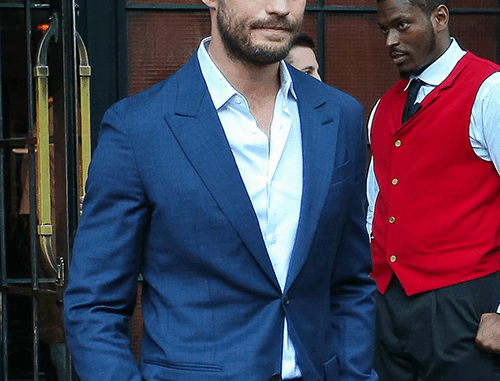
Seven years after Fifty Shades Freed premiered, Jamie Dornan sits down with BBC Culture and drops a bombshell: Christian Grey still follows him into real life—but he’s fighting back with therapy.
Dornan reveals candidly that the character’s emotional isolation and controlling habits began seeping into his everyday persona during a 2024 film press tour for Berlin Noir. “I was snapping at my publicist over nothing,” he says. “I realized too late it was Christian’s voice screaming in my head.”
Alarmed, Dornan sought help from a performance therapist specializing in role integration. “I hadn’t been that raw in a script, but I was flinching like a man who lost control.”
His therapy wasn’t traditional—no couch, no clinical setting—but talk walks in nature, voice-release exercises, and framing techniques to separate self from the role. “If I can’t say ‘Laters, baby,’ I say ‘Laters, Jamie,’” he joked.
The actor’s honesty has sparked debate. Some praise his vulnerability and call for mandatory post-role counseling in the film industry. Others question whether actors should be allowed to take on psychologically dark roles if they can’t walk away.
For Dornan, there’s no guilt. He describes the Christian Grey experience as a “gift wrapped in pain”—a global launchpad and creative landmark, but one that cost him emotional balance. “I’d do it again—but I’ll never go into it the same way.”
:max_bytes(150000):strip_icc():focal(511x0:513x2)/50-shades-2-1024-ec965948ff1f41efaa1e17a381348c05.jpg)
The story matters for both movie lovers and mental health advocates. As actors tackle psychologically intense roles, the emotional aftershocks are real—and arguably deserving of the same care we give to stunt safety and physical prep.
And maybe that’s why Dornan’s confession, far more than a PR move, feels like a watershed: a celebrated performer saying, “I needed help”—and in doing so, quietly pushing the industry toward better emotional care for its own.